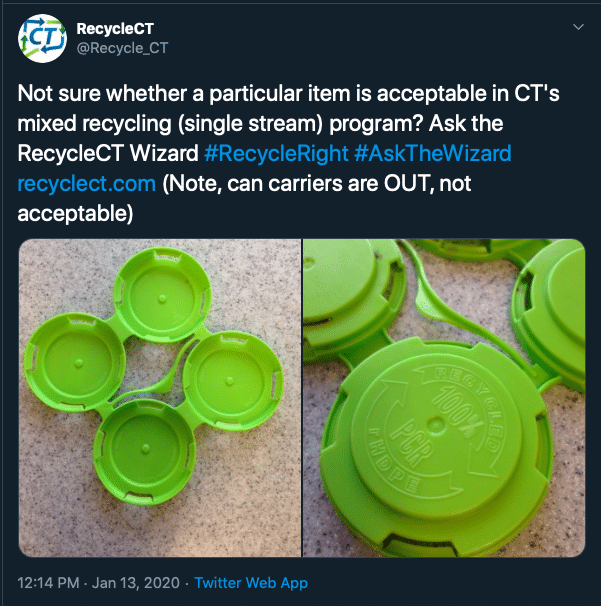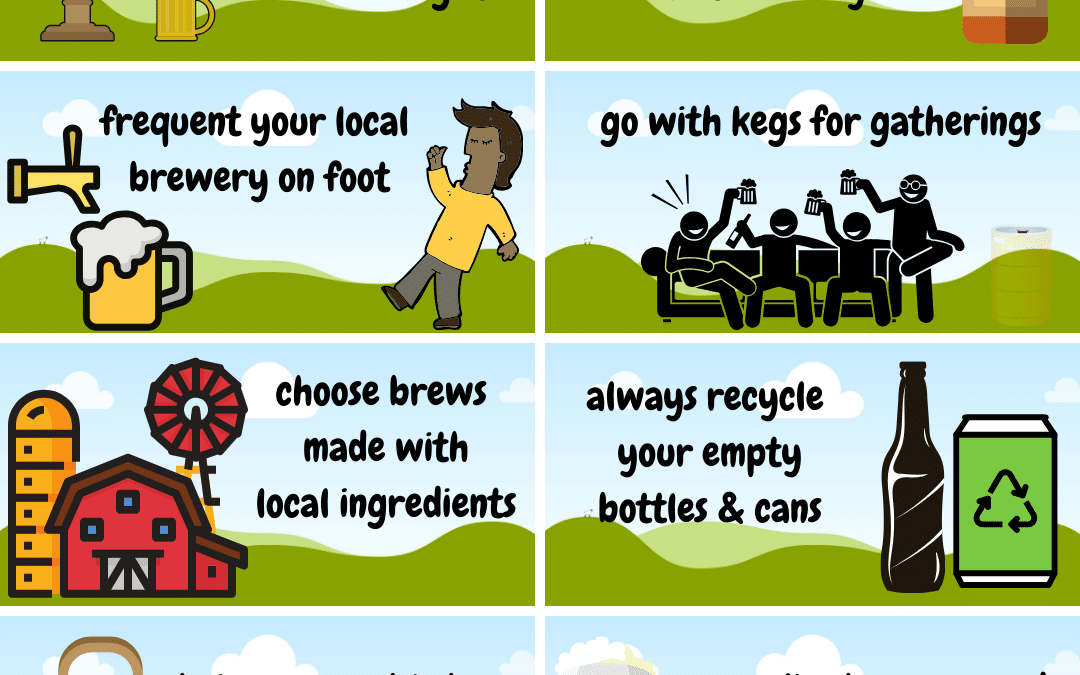As concerns over climate change, plastic pollution, and biodiversity loss continue to grow, it’s becoming abundantly clear that change lies ahead for the world as we know it – either by design or by disaster. And despite our planet’s brief respite during the pandemic, there’s not much optimism among environmentalists. In 2021, humanity had already used up its sustainable quota for natural resources by July 29, according to calculations from the Global Footprint Network. A date referred to as Earth Overshoot Day, it’s an annual acknowledgement that we’re using our resources faster than nature can regenerate them. At our current rate, it requires 1.6 planets to support humanity’s demands on Earth’s ecosystems. Admittedly, such reflection can be daunting. So with that in mind, here are eight practical choices you can make as a craft beer drinker (many of which can be adapted for other consumer decisions) to minimize your impact on the environment.
Buy Local, and Drink Draught
The single biggest thing you can do to be an environmentally conscious beer drinker is to choose hyper local brands (those brewed within 100 miles or less) whenever possible. Why encourage deliveries and vehicle emissions from far off breweries, a concept referred to as food miles (or in this case, beer miles), when you can choose from so many amazing options brewed near you? “Just like humans, who rack up a big carbon footprint when they travel anywhere, our [beer] can rack up some mileage too,” says Sustainable America.
Frequent Your Local Brewery, Preferably on Foot
Even better than buying local brews at a liquor store for home consumption is frequenting your neighborhood brewery to sip a few pints in its taproom. Nothing beats drinking from the source when it comes to sustainable consumption, not to mention the higher profit margin for the brewery. On-premise consumption allows the brewery to transfer its beer to refillable kegs and serve it in reusable glassware. Packaging takeaway beer in single-use cans or bottles that are wrapped in cardboard or topped with plastic uses more energy and creates more waste, much of which never gets recycled*.
Choose Refillables for Takeaway Beer
If you must purchase beer to-go, look for local breweries that still offer refillable growlers. Some brewers even offer refillable bottles that can be returned to the brewery to be cleaned and reused up to 25 times, requiring a fraction of the amount of energy required to produce new containers for every fill. A refillable growler has just 5% of the carbon footprint a recycled single-use can or bottle has, and uses far less water and energy to prepare it for its next fill.
Go With Reusable Kegs for Gatherings
Social distancing put the kibosh on its share of get togethers during the past two years, but festive gatherings are back. When planning yours, consider purchasing a keg rather than single-use bottles or cans by the case. Not only will you avoid overflowing your trash can and recycling bin, but you’ll save some money as well. According to beer store chain Craft Beer Cellar, who looked at a range of styles and price points for sixtels (which yield about 41 proper 16-ounce pints), “a customer would spend ~$15 to $25 more buying the equivalent amount of canned beer.”
Choose Brews Made With Local Ingredients
Choosing beers brewed with locally grown ingredients is an easy way to combat the problem of the aforementioned beer miles. When the ingredients travel less, and are bought direct from a farmer, it helps grow your local economy. Though its not practical to expect that every brewery will feature local ingredients in all of its beers, ask your local brewer which offerings do. If there’s a brew or two on the menu with at least some ingredients that originate close to home, choose those. While you’ve got their ear, let the brewer or beer pourer know that shortening their supply chain matters to you.
Bring a Reusable Bag When You Beer Shop
In addition to buying local brands, it’s also important to avoid unnecessary packaging for to-go purchases. That’s why some eco-conscious breweries have been ditching plastic rings and can carriers in favor of cardboard or even compostable options. Despite being marketed as “100% recyclable,” the truth is that plastic packaging isn’t accepted in most residential curbside collections. Next time you go beer shopping, bring along a reusable bag or portable cooler to tote your beer home. If it’s already topped by a carrier or ring, consider taking it off, turning it in, and telling the retail person that you prefer to avoid single-use plastic.

Always Recycle Your Bottles & Cans
Despite being infinitely recyclable, less than half of all glass bottles and aluminum cans sold in the U.S. ever get recycled according to Resource Recycling. That’s a shame, because the carbon footprint for producing containers made from recycled materials is dramatically lower than those sourced from mined materials, a process that’s energy intensive and results in significant land degradation. One solution: beverage container recycling rates in states or countries with deposit-redemption schemes are considerably higher, often double, than those without.
Buy Upcycled Products Made From Byproducts of the Brewing Process
You’ve probably heard about some breweries sending their spent grain to local farms to feed livestock, but that’s just the tip of the iceberg when it comes to creative uses for byproducts from the brewing process. Known as upcycling, a growing number of companies are sourcing ingredients from breweries to create innovative, high-quality products. Spent grains to produce highly nutritious flour or dog treats, beer trub to create hand made bars of beer soap, and used hops for making fertilizer or compost are just some of the creative ways ingredients are being maximized. ![]()
![]()
* Recycling rates vary by material and by country or region, but are no where near what they would need to be in order to be considered sustainable: able to meet the needs of the current generation without impacting future generations from being able to meet their own needs.
Related: How to Make Sure Your Infinitely Recyclable Beer Cans Actually Get Recycled

